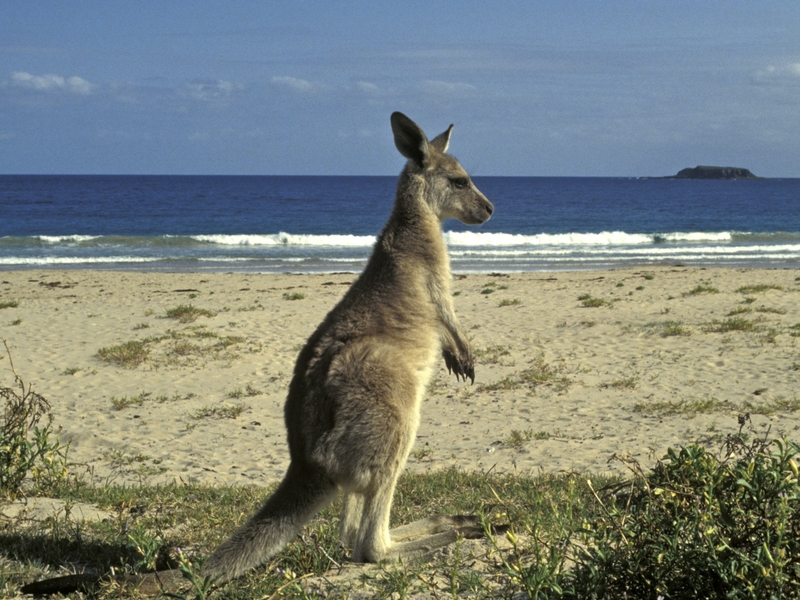An offbeat suggestion that Australians should eat kangaroos instead of cattle and sheep has been given a scientific stamp of approval by the government's top climate change adviser.
The belching and farting of millions of farm animals is a major contributor to Australia's greenhouse gas emissions, Professor Ross Garnaut noted in a major report to the government on global warming.
Kangaroos, on the other hand, emit negligible amounts of methane gas.
If farmers were included in a system requiring industry to buy permits for the gas they produce, the cost of meat would rise and could lead to a change in eating habits, Mr Garnaut said in the 600-page report released today.
'For most of Australia's human history - around 60,000 years - kangaroo was the main source of meat,' he said.
'It could again become important. However, there are some significant barriers to this change, including livestock and farm management issues, consumer resistance and the gradual nature of change in food tastes.'
Mr Garnaut cited a study looking at the potential for kangaroos to replace sheep and cattle for meat production in Australia's rangelands, where kangaroos are already harvested.
The study concludes that by 2020, beef cattle and sheep numbers could be reduced by 7m and 36m respectively, allowing for an increase in kangaroo numbers from 34m now to 240m by 2020.
This would be more than enough to replace the lost lamb and beef production, and kangaroo meat would become more profitable than cattle and sheep as the price of emissions permits increased.
Mr Garnaut's report said livestock, mainly cattle and sheep, are responsible for some 67% of agricultural greenhouse gas emissions.
Despite being the national animal and appearing on the Australian coat of arms, millions of kangaroos are slaughtered in the wild each year to control their numbers and much of the meat is used for pet food.
The idea of farming them for human consumption is controversial, but many health-conscious Australians already eat kangaroo meat.
'It's low in fat, it's got high protein levels, it's very clean in the sense that basically it's the ultimate free range animal,' says Peter Ampt of the University of New South Wales's Institute of Environmental Studies.
